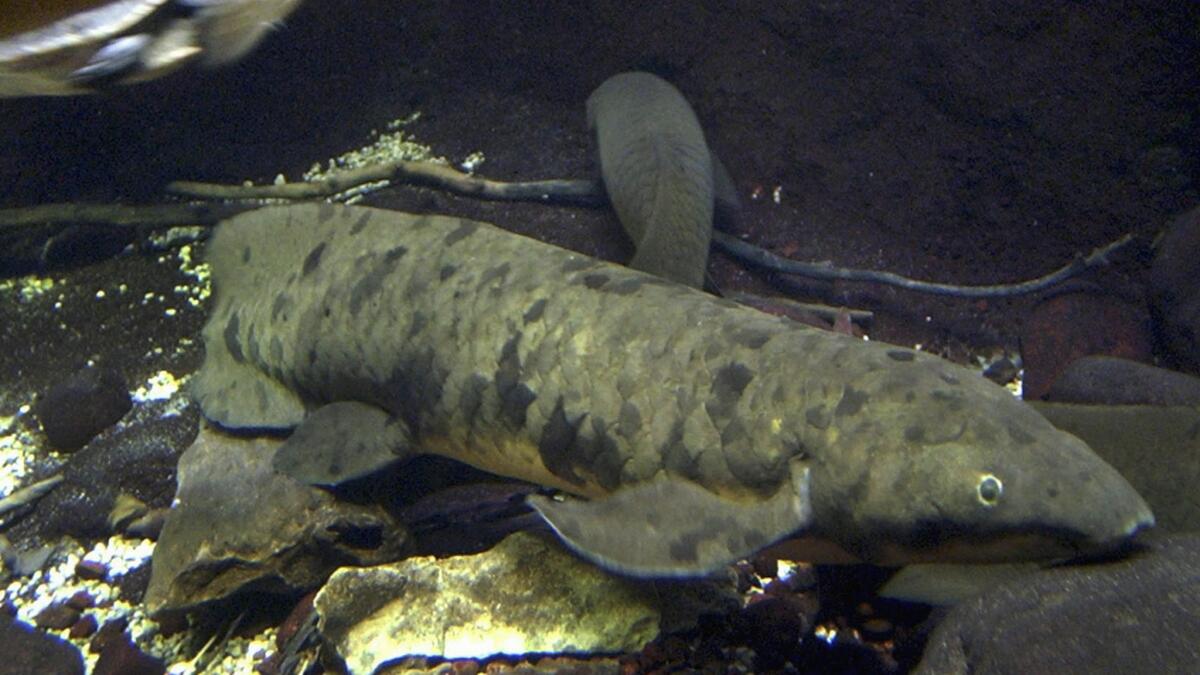Australian lungfish ‘Granddad,’ the oldest aquarium fish in the world, dies in Chicago

Reporting from Chicago — Granddad, the Shedd Aquarium Australian lungfish that was the oldest zoo animal in Chicago and the longest lived aquarium fish in the world, died Sunday, the aquarium announced Monday.
The representative of a prehistoric species had been at Shedd since three years after it opened in 1930 and was believed to be in its teens when it arrived, making the animal likely to have been in its 90s or possibly beyond the century mark.
He began losing interest in his food in the last couple of weeks, aquarium collections manager Michelle Sattler said, and on Saturday took a turn for the worse, exhibiting signs of a “shutting down” of vital systems. Shedd health specialists made the decision to euthanize him for humane reasons.
“It’s a sad week for us, and it’s history for a lot of people,” said Sattler.
In August, another longtime Chicago favorite zoo animal died. Brookfield Zoo’s Cookie the cockatoo, who was part of the suburban zoo’s original collection in 1934, died, also from age-related complications.
Granddad’s story was remarkable, having been brought here from Australia with its mate in time for the 1933 World’s Fair. Shedd President and CEO Bridget Coughlin touted the animal as a featured attraction as recently as in a City Club of Chicago luncheon speech Wednesday.
“For a fish who spent much of his time imitating a fallen log, he sparked curiosity, excitement and wonder among guests of all ages,” Coughlin said in a statement Monday. “(They) would hear his story and learn about the incredible biology that makes his species a living fossil and one of the oldest living vertebrate genera on the planet.”
The Shedd estimated that 104 million guests had seen the slow-moving fish, capable of breathing both air and in the water, during his lifetime in Chicago. He was about 4 feet long, spotted and weighed 25 pounds and is survived by three other Australian lungfish in the exhibit and an African lungfish that will soon go on display.
Johnson writes for the Chicago Tribune.
ALSO
What makes a frog’s tongue so sticky? The secret is in the spit
Zika virus is here to stay. Here’s how California is preparing for that new reality
Using science to see which countries are following through on Paris climate change goals
More to Read
Sign up for Essential California
The most important California stories and recommendations in your inbox every morning.
You may occasionally receive promotional content from the Los Angeles Times.










